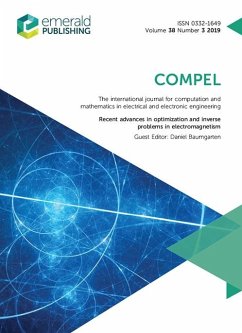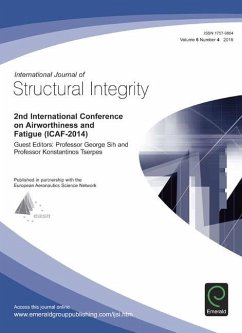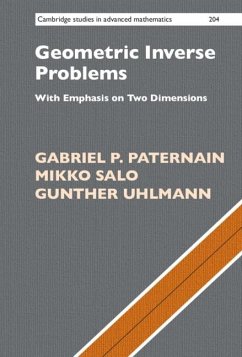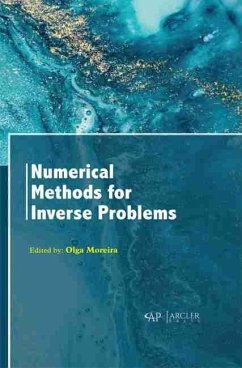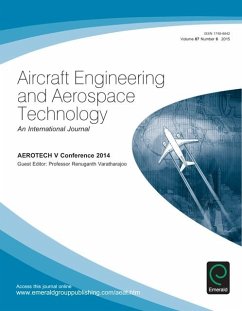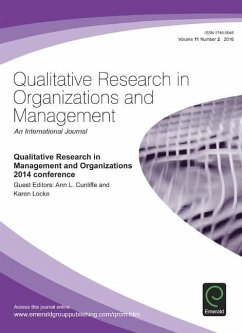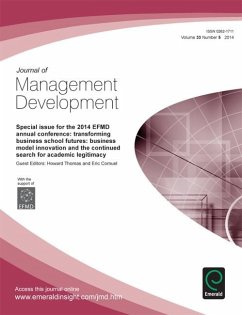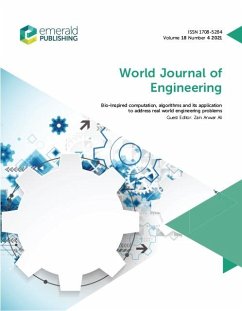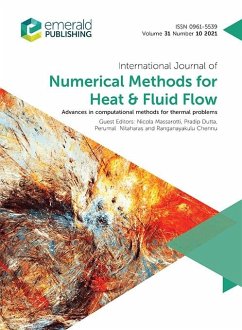
International Conference on Inverse Problems in Engineering 2014 (eBook, PDF)

PAYBACK Punkte
54 °P sammeln!
Papers published in this special issue have been presented during the International Conference on Inverse Problems in Engineering 2014 (ICIPE2014) which took place in Krakow, Poland, in May, 2014. The ICIPE2014 was the 24th in the series of national and international meetings on Inverse Problems that were initiated at Michigan State University in 1988. The 2014 edition is the 8th International Conference. Both the Scientific Committee Members and the Participants come from many countries all over the world: USA, Brazil, Russia, Poland, France among others. The primary purpose of the Conference...
Papers published in this special issue have been presented during the International Conference on Inverse Problems in Engineering 2014 (ICIPE2014) which took place in Krakow, Poland, in May, 2014. The ICIPE2014 was the 24th in the series of national and international meetings on Inverse Problems that were initiated at Michigan State University in 1988. The 2014 edition is the 8th International Conference. Both the Scientific Committee Members and the Participants come from many countries all over the world: USA, Brazil, Russia, Poland, France among others. The primary purpose of the Conference is to provide a forum of scientist and graduate students in sciences and engineering to present recent results of the inverse problems.The issue contains 13 papers and presents few hot and important topics in inverse thermal analysis. One of them is methodology to determine thermal properties like thermal diffusivity, thermal conductivity, emissivity coefficient, diffusion coefficient, etc. Together with details of the estimation algorithms Authors discuss particular problems occurring during experiments like problem of extremely small samples, non-destructive measurement of large block thermal conductivity made of anisotropic material, heating imposed either by a laser in the near-infrared range or by radiofrequency waves, determination of the thermophysical properties for a thin layer coating, etc.Other important topic being dealt with in this special issue is how to formulate and solve inverse thermal problem for technically important industrial or medical processes. Just as an example aluminium alloy welding, thermal insulation of a spacecraft, monitoring of transient thermal stresses, application of the proper orthogonal decomposition (POD) to determine wind loads on photovoltaic (PV) roof installation, hyperthermia treatment of cancer, ablation of cancer, etc.The issue contains also papers coping with theoretical and computational aspects of the particular methods applicable to solving of inverse thermal problems like Tikhonov regularization method, Gaussian filtering technique, Marcov Chain Monte Carlo, etc. One paper presents recent Russian contributions to the identification and modelling of inverse thermal processes.
Dieser Download kann aus rechtlichen Gründen nur mit Rechnungsadresse in A, B, BG, CY, CZ, D, DK, EW, E, FIN, F, GR, HR, H, IRL, I, LT, L, LR, M, NL, PL, P, R, S, SLO, SK ausgeliefert werden.




